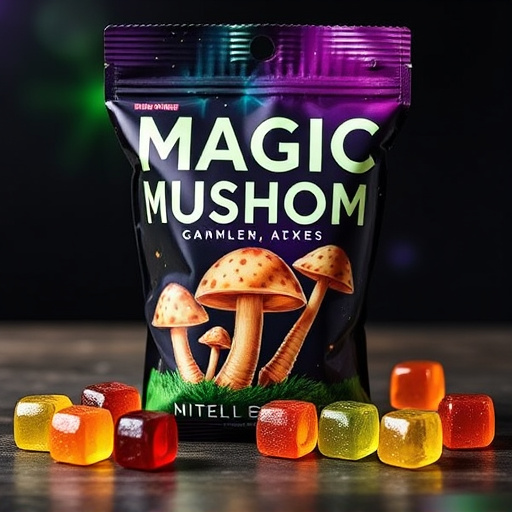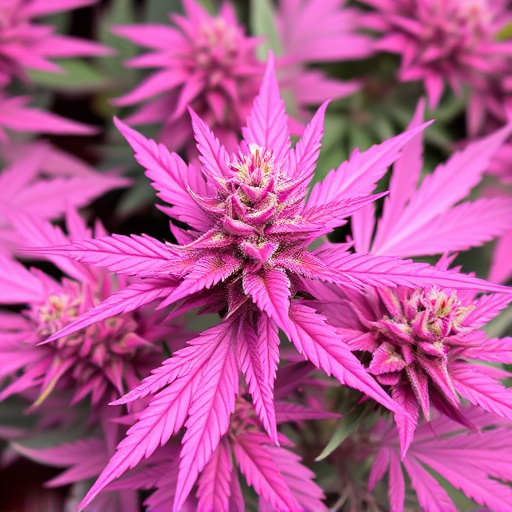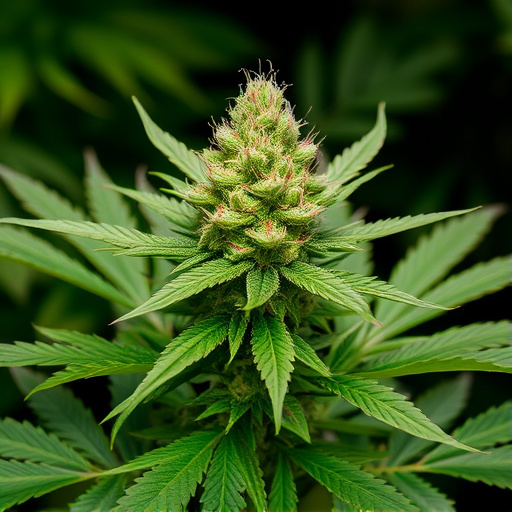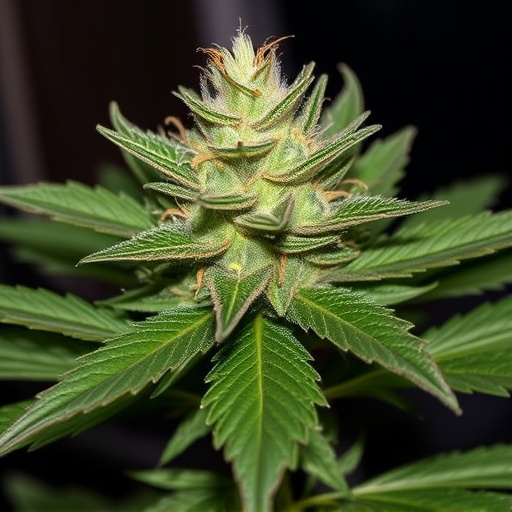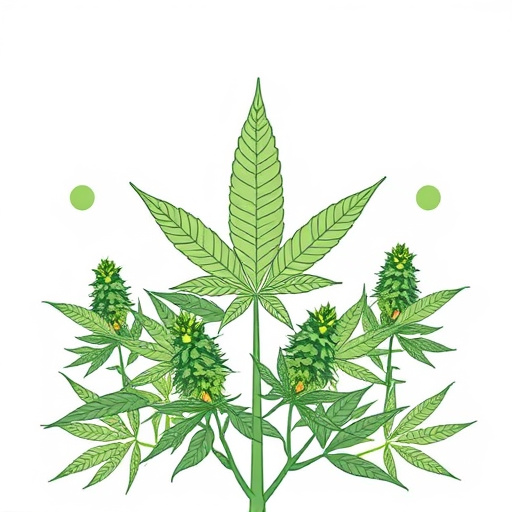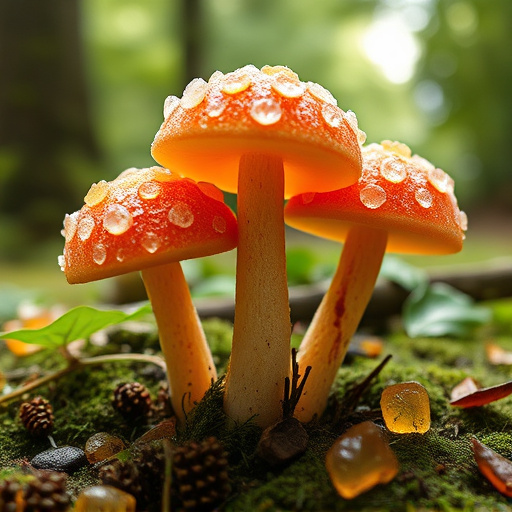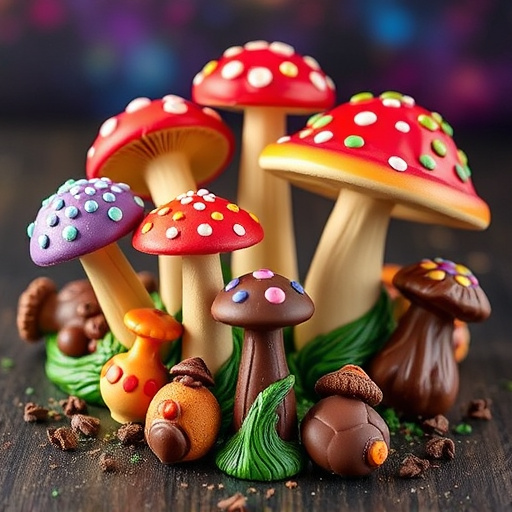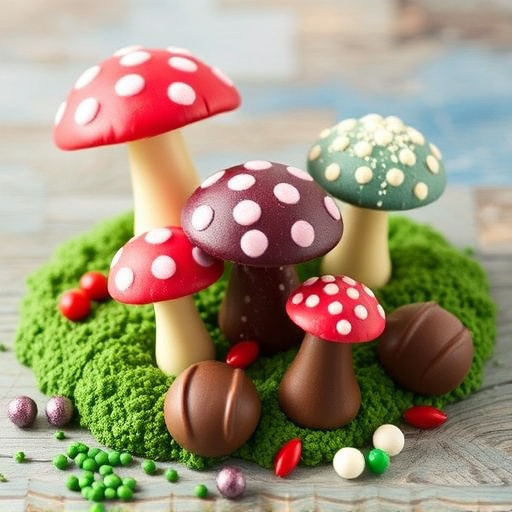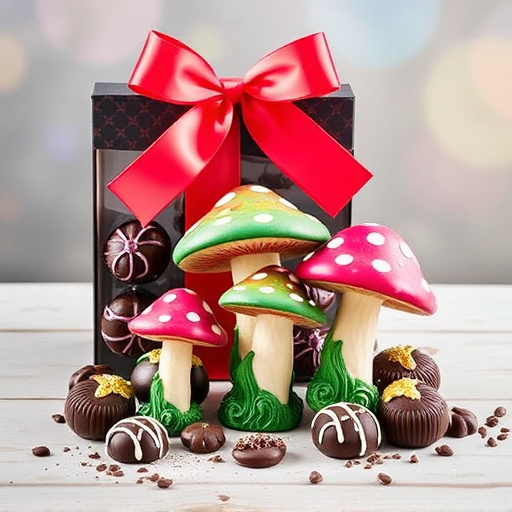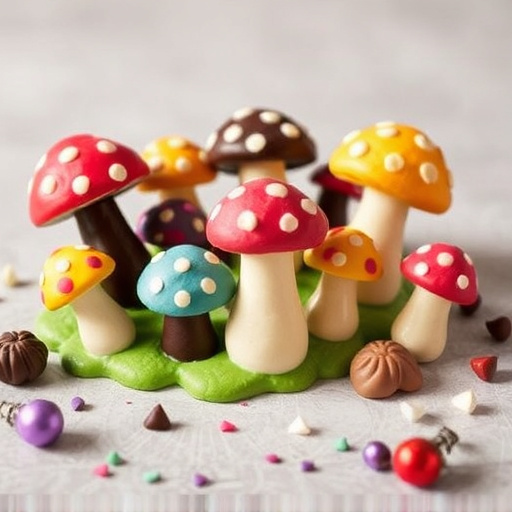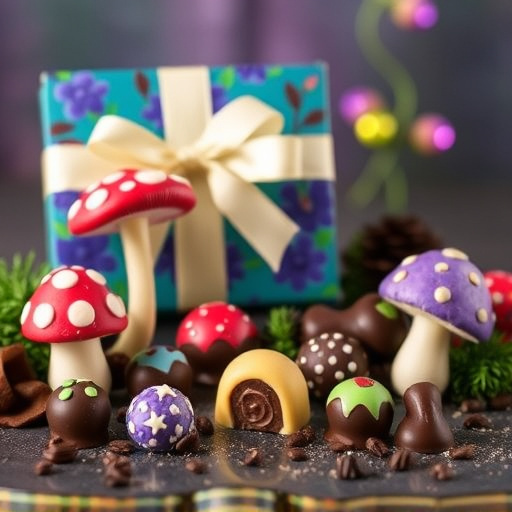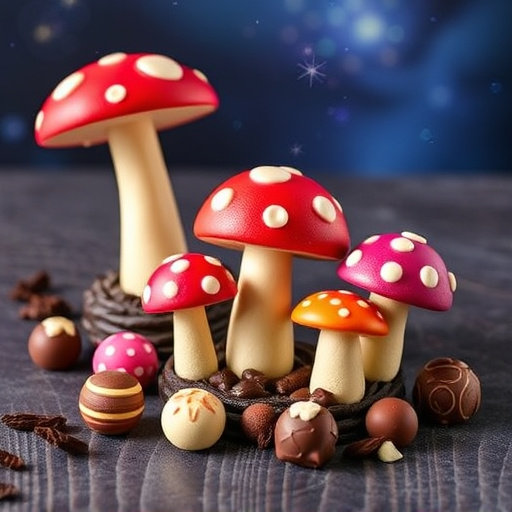Magic Mushroom Chocolates represent a novel culinary and therapeutic fusion, infusing psilocybin-rich mushrooms into gourmet treats. These chocolates offer subtle yet pleasurable sensory experiences, blending mushroom flavors with chocolate's richness. Beyond taste, they hint at potential cognitive enhancements and mental wellness benefits due to psilocybin's role in altering neural connectivity, promoting neuroplasticity, and facilitating neurotransmitter release. However, their therapeutic use is constrained by legal restrictions, variable experiences, and safety considerations. Understanding neural connectivity is key to unlocking their benefits while advocating for responsible consumption.
“Magic Mushroom Chocolates: Unveiling a Unique Culinary Experience
In the realm of indulgent treats, Magic Mushroom Chocolates have emerged as an intriguing and controversial delight. This article delves into the creation and allure of these unique confections, exploring their connection to neural connectivity—a fascinating scientific aspect that has sparked curiosity and debate. We’ll guide you through the potential benefits and considerations surrounding their consumption, offering a comprehensive look at this peculiar culinary phenomenon.”
- Unveiling Magic Mushroom Chocolates: A Unique Treat
- The Science Behind Neural Connectivity and Its Link to These Delicacies
- Exploring the Potential Benefits and Considerations of Consumption
Unveiling Magic Mushroom Chocolates: A Unique Treat
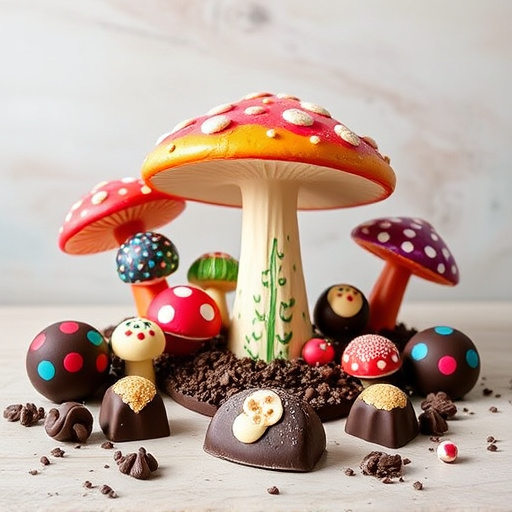
Magic Mushroom chocolates are a unique culinary creation that combines the essence of psychedelic mushrooms with delicious chocolate. These treats, often crafted as gourmet candies or infused into dark chocolate bars, offer more than just a tasty experience. They represent a fusion of culinary art and the intriguing potential of psilocybin, the active compound found in certain magic mushrooms, to enhance neural connectivity.
By incorporating these mushrooms into chocolates, creators aim to provide a subtle yet pleasurable sensory journey. The delicate flavor profiles of specific mushroom varieties blend seamlessly with chocolate’s rich taste, creating a harmonious combination that captivates the palate. Furthermore, the potential effects of psilocybin on brain activity have sparked interest in its therapeutic applications, suggesting that indulging in Magic Mushroom chocolates might offer more than just a delightful treat—it could be a gateway to enhanced cognitive experiences and potential mental wellness benefits.
The Science Behind Neural Connectivity and Its Link to These Delicacies
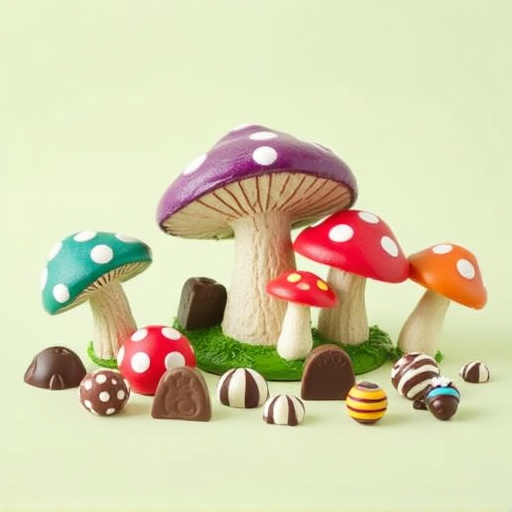
Magic mushroom chocolates, also known as psychotropic chocolate, are a modern twist on an ancient practice. The active compound in magic mushrooms, psilocybin, is known to enhance neural connectivity in the brain. This compound acts as a serotonin receptor agonist, triggering a release of neurotransmitters that facilitate communication between neurons. When consumed in a controlled environment, psilocybin can induce profound psychological changes and enhanced emotional experiences.
The link between magic mushroom chocolates and neural connectivity lies in their ability to promote neuroplasticity—the brain’s capacity for change and adaptation. Studies have shown that psilocybin can alter activity patterns in the default mode network, a set of brain regions active when the mind wanders or during self-reflection. By temporarily silencing these networks, magic mushrooms encourage the brain to enter a state of heightened creativity and openness. This neural reconfiguration is believed to be responsible for the therapeutic potential of psilocybin, including its ability to reduce anxiety, depression, and addiction.
Exploring the Potential Benefits and Considerations of Consumption
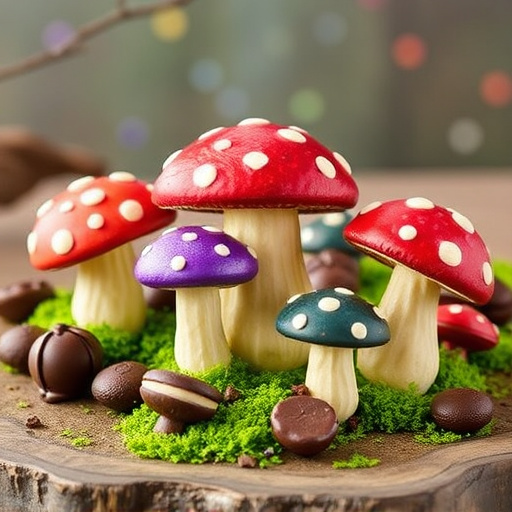
Magic mushroom chocolates, a unique blend of psilocybin-rich mushrooms incorporated into edible chocolate treats, have garnered significant attention for their potential therapeutic benefits. Beyond the pleasurable sensory experience offered by the combination of chocolate’s richness and the subtle effects of psychedelic compounds, researchers are exploring the impact of these edibles on neural connectivity. Studies suggest that psilocybin, the active compound in magic mushrooms, can induce changes in brain activity, leading to enhanced cognitive functions and altered states of consciousness.
Consumption of magic mushroom chocolates, like other psilocybin-based products, comes with considerations. While they show promise for treating conditions like depression, anxiety, and PTSD, the effects can be highly variable and unpredictable. The experience induced by these mushrooms is deeply personal, influenced by individual psychology, setting, and expectations. Additionally, psilocybin remains a controlled substance in many jurisdictions, limiting access to research and therapeutic settings. Understanding neural connectivity and the brain’s response to psilocybin is crucial for unlocking their full potential while ensuring safe and responsible use.
Magic mushroom chocolates represent a unique fusion of culinary delight and psychological exploration. By harnessing the principles of neural connectivity, these treats offer potential benefits that range from enhanced creativity to improved mood and mental clarity. However, as with any substance affecting the mind, it’s crucial to approach magic mushroom chocolates with caution and consideration. Further research is needed to fully understand their effects, but the initial findings suggest they could be a game-changer in the realm of mental wellness. Remember that, in terms of neural connectivity and Magic Mushroom Chocolates, the path forward is both intriguing and complex.
